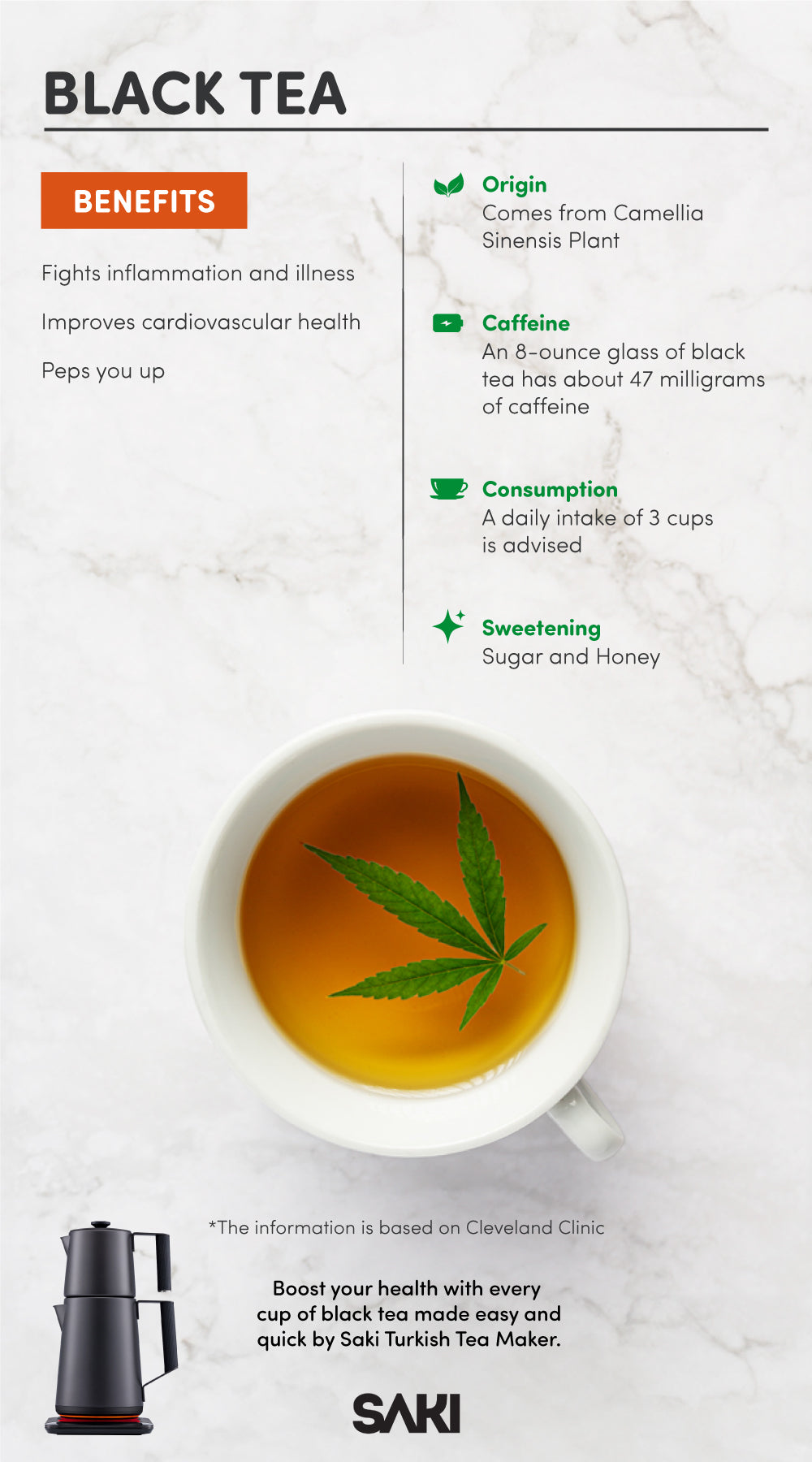
The Ultimate Guide: What is Black Tea?

Tea enthusiasts and novices alike are familiar with the rich taste and aroma of black tea. This popular beverage has intertwined with countless cultures and traditions across centuries.. Today, we dive deep into understanding black tea and exploring its global significance.
What is Black Tea?
Black tea is also called "red tea" in China and is one of four main tea types. It's made by fully oxidizing tea leaves, which gives it a distinctive dark color and strong flavor.
Oxidizing process involves withering, rolling, and drying the Camellia sinensis plant leaves. Because of this, black tea has more caffeine than green or white tea.
When you brew black tea in hot water, the leaves open up and give off a rich smell and taste that can be bold, malty, sweet, or even smoky. To brew it perfectly, try the Chaiovar Electric Samovar, a modern take on the classic tea-making method. People all over the world, young and old, love black tea the most among all teas.
Key Characteristic of Black Tea:
- Origin: Derived from the Camellia sinensis plant.
- Color: Deep amber to reddish-brown.
- Taste: Robust with varying undertones depending on its origin.
- Caffeine Content: Medium to High, typically ranging from 40-70mg per cup.
- Typical Brewing Time: 3-5 minutes

The History and Cultural Significance of Tea
The history of tea boasts ancient roots, dating back thousands of years to China. It was first cultivated there around 2737 BC and swiftly integrated itself as an integral part of Chinese culture.
According to legend, Emperor Shen Nong serendipitously discovered tea when leaves blew into his pot of boiling water. Over the centuries, tea cultivation expanded across Asia, with black tea becoming particularly popular. During China’s Tang Dynasty, tea evolved into an art form, epitomized by the celebrated Chinese tea ceremony. Beyond its ceremonial value, tea served medicinal purposes and played a role in social and religious occasions. The Chinese also honed a sophisticated system of tea preparation, a tradition still upheld today.
As tea voyaged across continents, it took root in diverse cultures. The Japanese not only adopted but also adapted the tea ceremony into their unique tradition. In England, the beverage reshaped afternoon routines, giving birth to the classic 'afternoon tea' ritual, replete with scones, jam, and clotted cream. Events like the Boston Tea Party in the United States and India's Dandi March, where tea held significant symbolism, underscore its profound influence on global history, revolutions, culture, and daily life.
The Importance and Popularity of Black Tea
Among the different varieties of tea—white, green, oolong, and black—black tea stands out as the global favorite. Its robust flavor coupled with a longer shelf life, compared to its less oxidized counterparts, cements its popularity.
In Britain, the iconic Earl Grey and English Breakfast teas are woven into the fabric of daily life. Meanwhile, in India, chai, an aromatic blend of black tea with spices and milk, serves as a daily staple. The smoky Lapsang Souchong garners affection worldwide, while the malty Assam and the brisk Darjeeling captivate connoisseurs with their distinct profiles.
In addition to its rich flavors, black tea boasts a range of health advantages. It's a rich source of antioxidants, linked to promoting heart health, assisting with weight loss, and potentially reducing the risk of certain cancers.
For those seeking a caffeine lift, black tea is a preferred choice. Containing roughly half the caffeine of coffee, it offers a more moderate energy surge, mitigating the chances of jitters or anxiety.
Common Questions About Black Tea
- How is black tea different from green or white tea? The primary difference lies in the processing. Black tea is fully oxidized, green tea is not oxidized, and white tea is minimally processed. This results in varying flavors, colors, and health benefits for each tea type.
- How much caffeine is in black tea? Black tea typically contains between 40-70 mg of caffeine per 8 oz cup, which is about half the amount found in coffee.
- Is black tea good for your health? Yes, black tea is rich in antioxidants called polyphenols that offer various health benefits, including improved heart health, reduced risk of certain cancers, and support for weight loss.
- How do you brew black tea? To brew black tea, use boiling water and steep the tea for 3-5 minutes, depending on personal preference for strength. Over-steeping can result in a bitter taste. For the perfect brew, consider the Chaiovar Electric Samovar. Its precise temperature control ensures that every cup of black tea you make is just right.
Conclusion
As the world continues to sip and celebrate this timeless beverage, black tea remains a testament to traditions, cultures, and the simple pleasures of life. Whether you're a seasoned tea aficionado or a curious beginner, the rich and aromatic world of black tea awaits your exploration.

